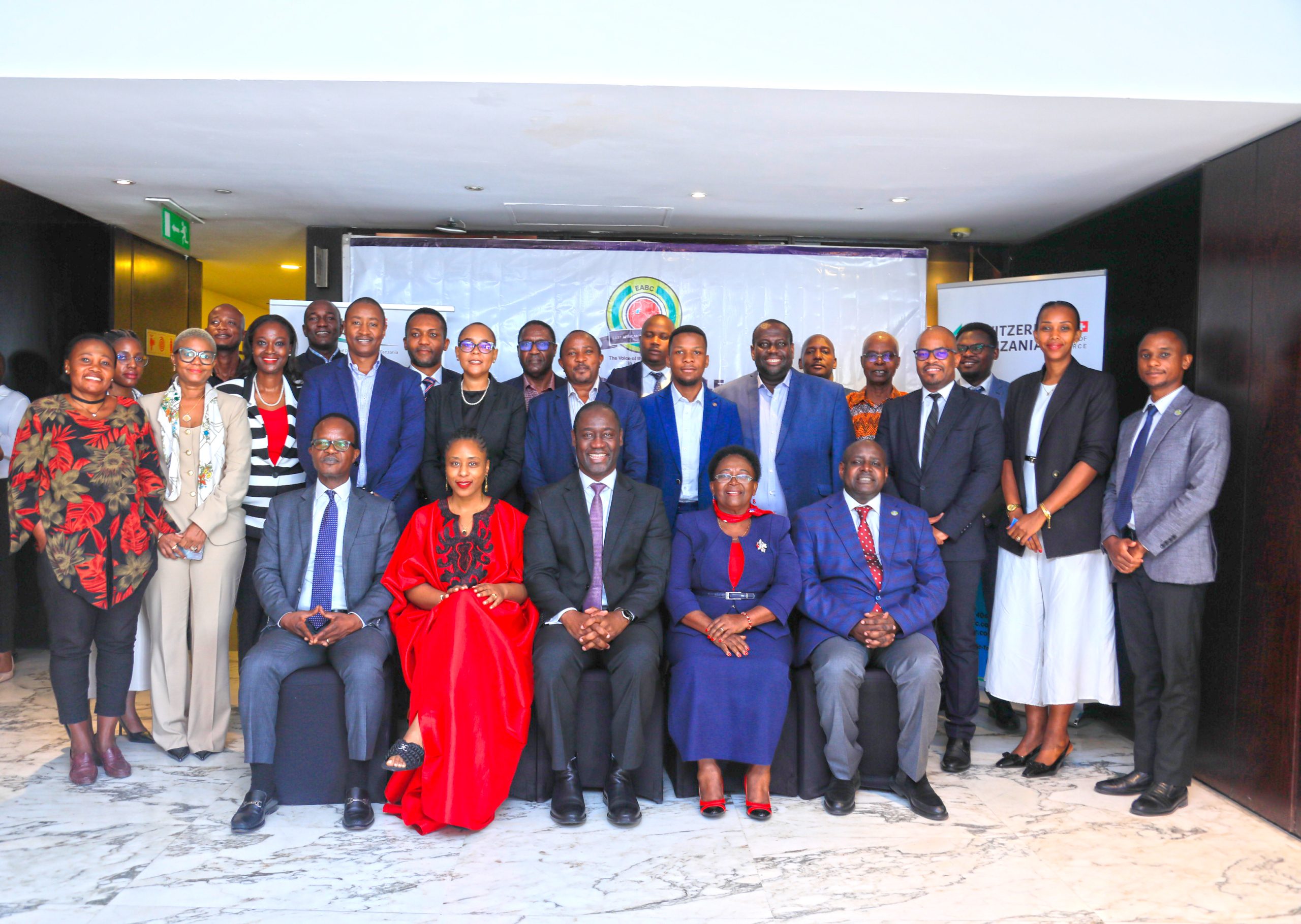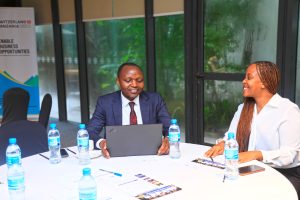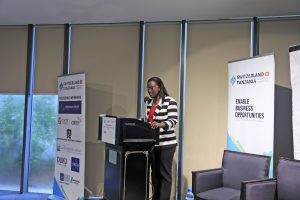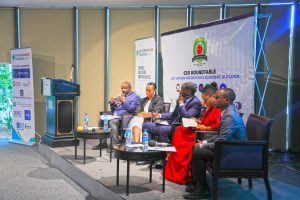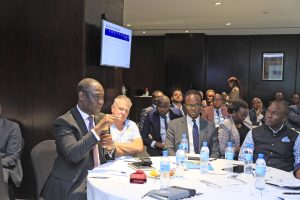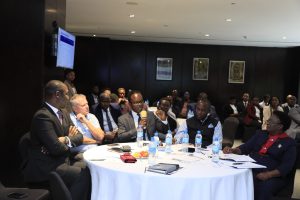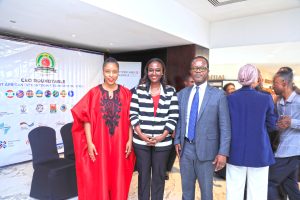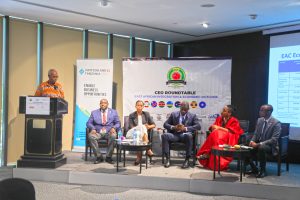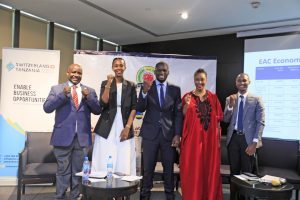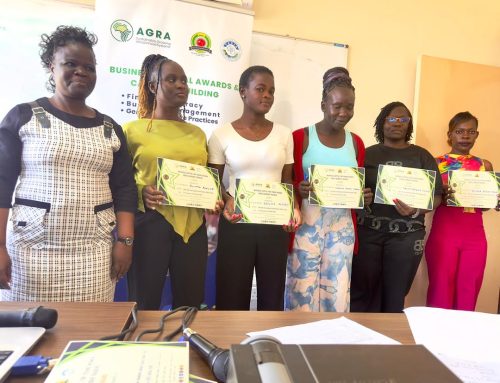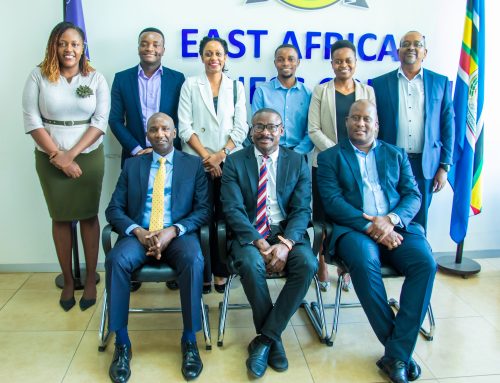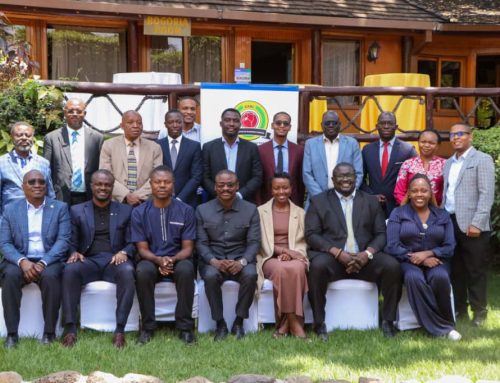Wednesday, March 20th, 2024: Tanzania’s real GDP growth is expected to reach 6.3% in 2024, this was revealed during the CEO Roundtable Meeting on East African Integration and Economic Outlook 2024 organized by the East African Business Council (EABC), in partnership with the Switzerland-Tanzania Chamber of Commerce, Tanzania Private Sector Association (TPSF), the Confederation of Tanzania Industries (CTI) and RSM Eastern Africa.
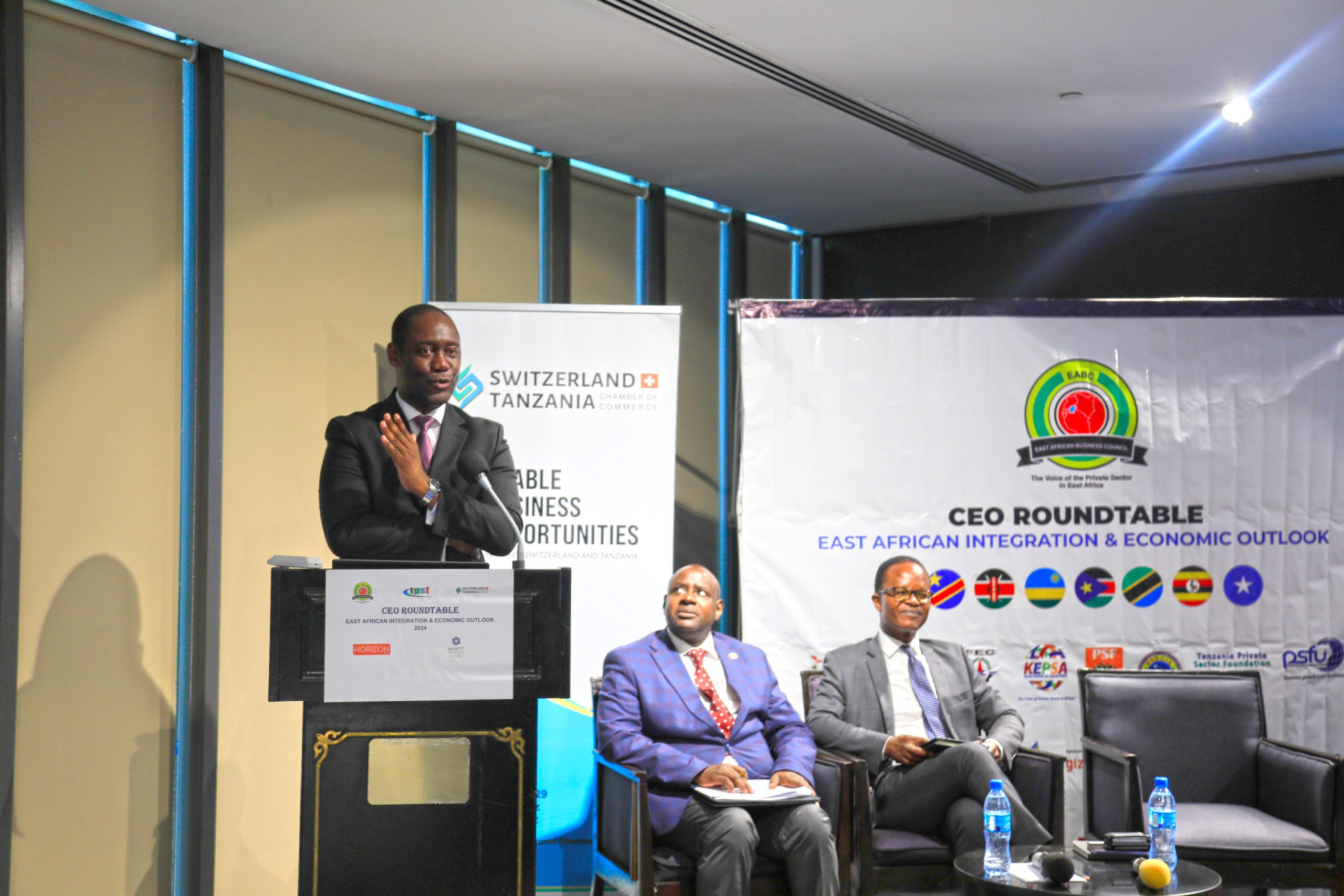 The Chief Guest, Amb. John Robert Ulanga, Director of the Department of International Trade Coordination and Economic Diplomacy at the Ministry of Foreign Affairs and East African Cooperation – The United Republic of Tanzania, representing the Permanent Secretary Amb. Stephen Mbundi, emphasized that the implementation of the EAC industrialization strategy, transport inter-connectivity and trade facilitation are crucial to boosting intra-EAC and Africa trade.
The Chief Guest, Amb. John Robert Ulanga, Director of the Department of International Trade Coordination and Economic Diplomacy at the Ministry of Foreign Affairs and East African Cooperation – The United Republic of Tanzania, representing the Permanent Secretary Amb. Stephen Mbundi, emphasized that the implementation of the EAC industrialization strategy, transport inter-connectivity and trade facilitation are crucial to boosting intra-EAC and Africa trade.
Tanzania’s economic growth is fueled by the rebound in tourism and continued investment in public infrastructure. Presenting the Economic Outlook 2024, Mr. John Bosco Kalisa, EABC Executive Director, stated, “Inflation in Tanzania is projected to moderate to 4.0% in 2024, potentially influenced by global commodity prices and domestic demand.”
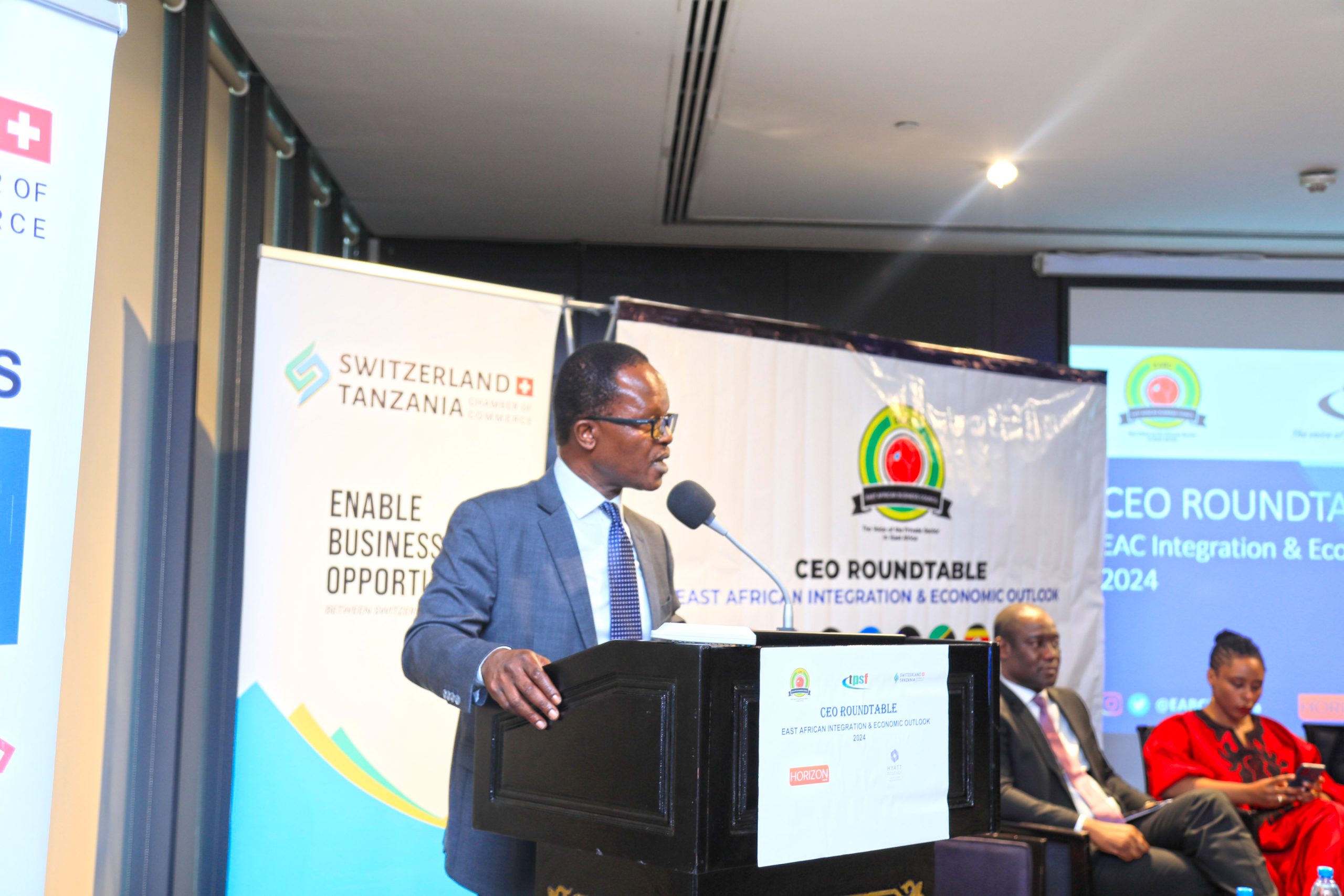 Mr. Paul Makanza, EABC Board Member, stated that EAC Economies will grow at 5.48% in 2024, increasing from 4.9% in 2023 (IMF 2023). EAC inflation is projected to reduce from 12.5% in 2023 to 7.9% in 2024, indicating a positive outlook for price stability.
Mr. Paul Makanza, EABC Board Member, stated that EAC Economies will grow at 5.48% in 2024, increasing from 4.9% in 2023 (IMF 2023). EAC inflation is projected to reduce from 12.5% in 2023 to 7.9% in 2024, indicating a positive outlook for price stability.
On her part, Ms. Amne Suedi, Chairperson of Switzerland-Tanzania Chamber of Commerce, said, “We should leverage our competitiveness as an EAC bloc in the global value chains.” She emphasized the need for harmonization of policies and infrastructure development for the prosperity of East Africans through trade.
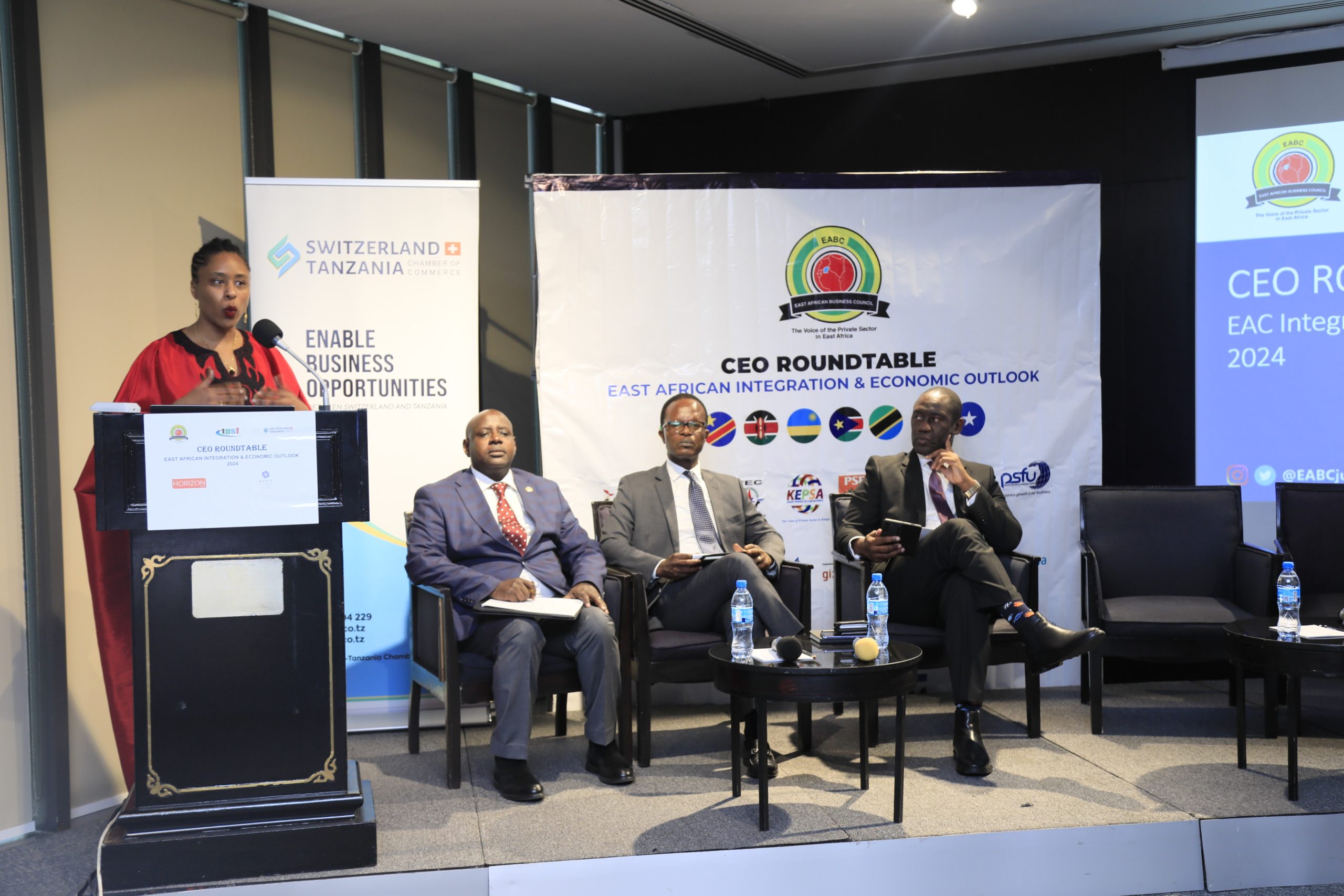 Mr. Kalisa also stated that East Africa accounted for the highest number of countries with GDP growth exceeding 5 percent in 2023, underscoring its continued strong performance and diversified economies. However, having a low share of savings and tax to GDP leads to a budget deficit and borrowing.
Mr. Kalisa also stated that East Africa accounted for the highest number of countries with GDP growth exceeding 5 percent in 2023, underscoring its continued strong performance and diversified economies. However, having a low share of savings and tax to GDP leads to a budget deficit and borrowing.
The EABC-RSM Eastern Africa Outlook 2024 reveals that the agricultural sector boosted Tanzania’s GDP growth by 14.2%. Tanzania’s manufacturing sector contributed 7.3% to the country’s GDP growth. The financial and insurance sector grew by 14.7% in the third quarter of 2023.
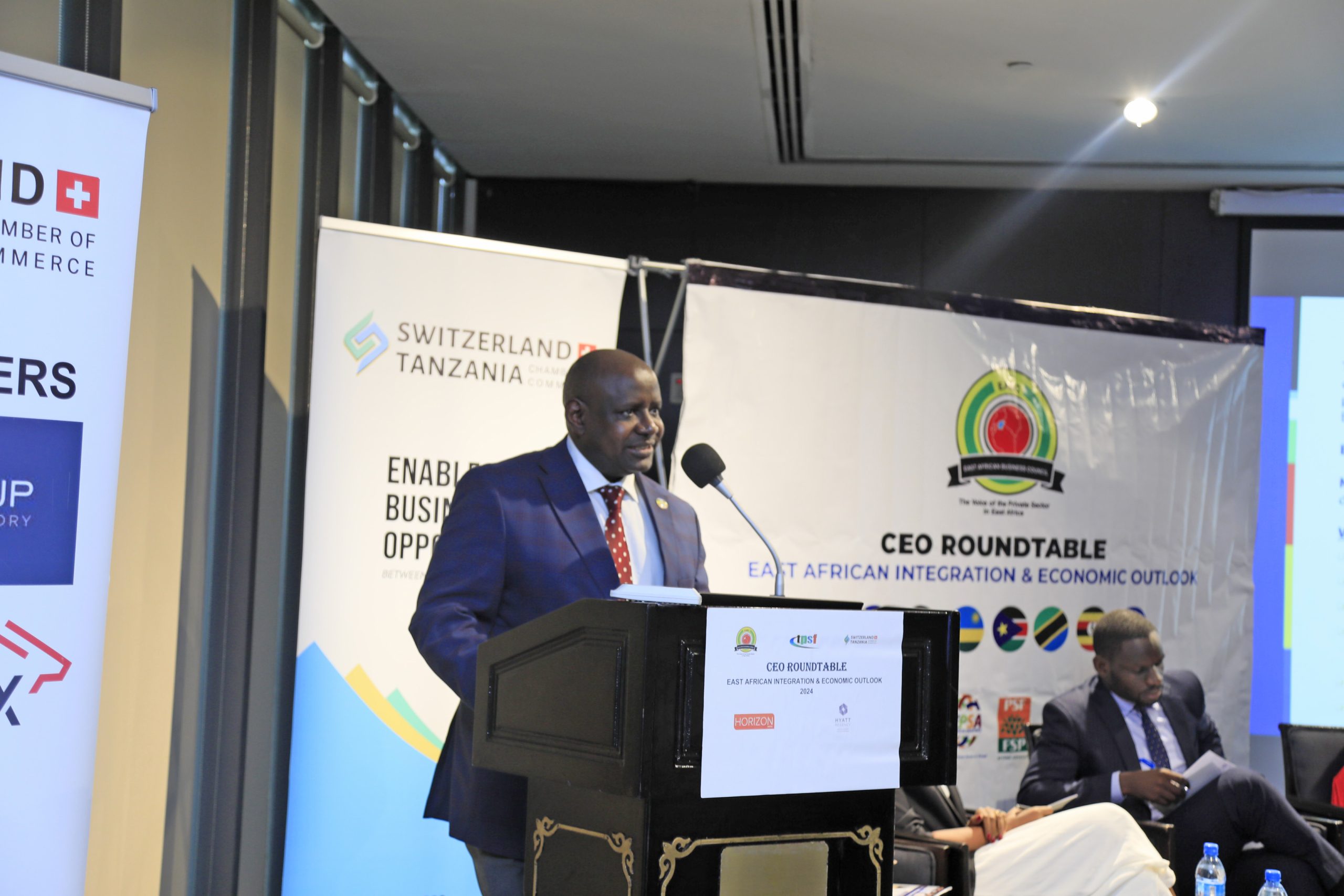 Mr. Kalisa stated Tanzania should upgrade the agricultural economy to value-based processing. He stated there is a global shortage of the supply of dollars leading to depreciation of shillings. He stated EAC Partner states should pay and settle intra-EAC trade in the local currency to mitigate the depreciation of shilling to dollar.
Mr. Kalisa stated Tanzania should upgrade the agricultural economy to value-based processing. He stated there is a global shortage of the supply of dollars leading to depreciation of shillings. He stated EAC Partner states should pay and settle intra-EAC trade in the local currency to mitigate the depreciation of shilling to dollar.
The panel session shared invaluable insights into the economic trajectory of the region, continent, and beyond. Mr. Godfrey Mondi, TPSF Program Specialist, said (TPSF) called for the need to improve port efficiency for competitiveness and the use of the Pan African Payment Settlement System to boost intra-African trade.
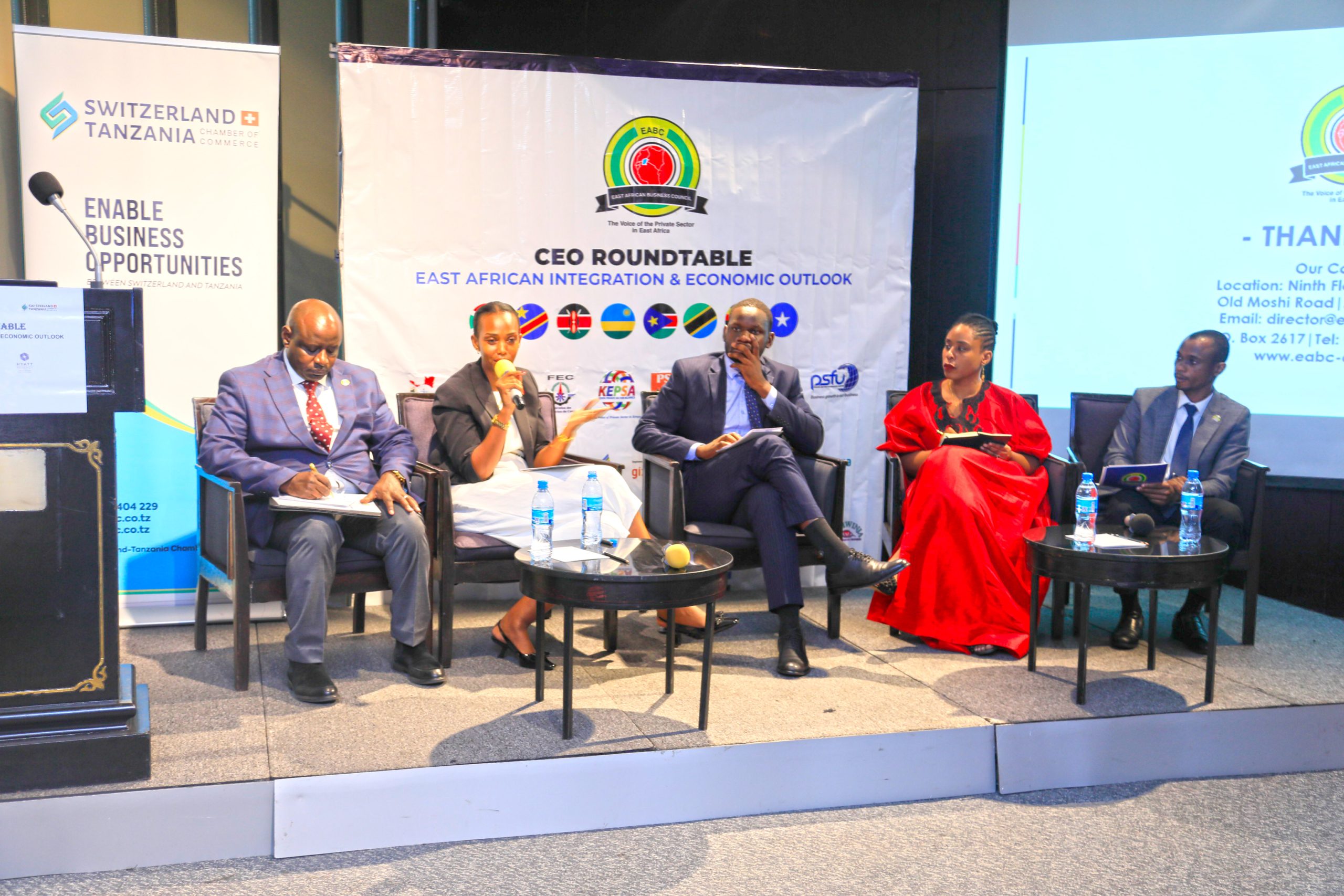
In her contribution, Mrs. Jenipher Bashugwa, Managing Director, Alaska Tanzania Group, called for the commercialization of agriculture, reduction of regulatory costs of compliance for SMEs, and the simplification of trade procedures. Ms. Amne Suedi, Chairperson STCC, emphasized the need for the elimination of non-tariff barriers, access to finance, venture capital to scale businesses in the EAC bloc. The panel session was moderated by Zephaniah Shaidi, EABC Membership Manager.
In her contribution to the panel discussion, EABC GoodWill Ambassador Mercy Sila emphasized the importance of support to formalize the informal sector and upgrading agribusiness. The RoundTable attracted 50 top business leaders in Tanzania, including Mr. Raphael Maganga, CEO TPSF. The business leaders discussed and raised the following proposals: Ratification of the EAC Double Taxation Treaty, enhancing business ties with the newest member of the EAC – Somalia, reduction of electricity and internet costs, infrastructure development, strengthening of public-private dialogue, skills development, enhancing policy predictability to attract investments, harmonize laws, and reduce restrictions to services trade from EAC Common Market Scorecard, digitalizing business processes and taxation, strengthening regional agro-value chain and trade, commercializing agriculture, trading in unique, comparative, and competitive products, EAC arbitration mechanism. Implementation of EAC commitments and a coherent strategy on public-private dialogue to improving trust between EAC Partner States to eliminate barriers. The strategy should include: Joint EAC power projects, Standard Gauge Railways to enhance competitiveness of the EAC bloc, East Africa Build East Africa campaign.
In his closing remarks, Dr. Samuel Nyantahe, EABC GoodWill Ambassador, called for regional thinking & cooperation, elimination of barriers to trade and strengthening of EAC industrial value chains.

